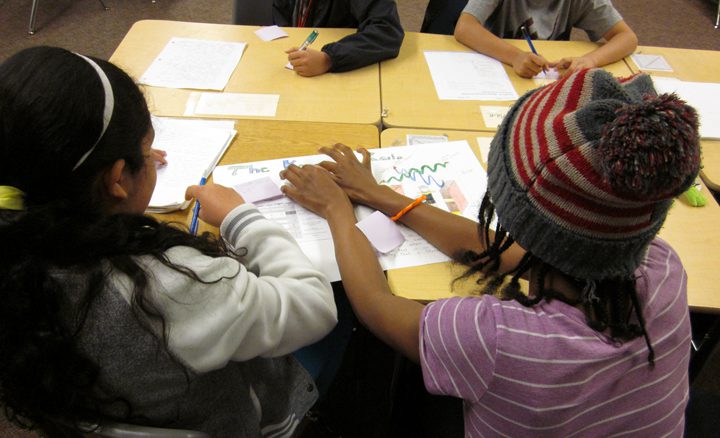ACESSE Resource B: How to Assess Three-Dimensional Learning in the Classroom: Building Assessment Tasks that Work

How is assessing three-dimensional science learning different than past assessments of science learning? How can we design assessment tasks that elicit the core ideas, practices, and crosscutting concepts in the Next Generation Science Standards (NGSS) performance expectations?
There are very few existing examples of elementary and middle school assessments completely aligned to the NGSS. Instead, educators need to adapt their existing assessments.
This open educational resource provides an opportunity for educators to begin building or adapting three-dimensional formative assessments in a 60-70 minute professional development session. The module includes all of the resources that PD facilitators need to adapt and run the sessions—including slides, speaker notes, facilitator guide, and embedded resources.
The workshop aims to help participants identify assessment components that focus on individual practices, core ideas, or crosscutting concepts, and understand how, taken together, the components can support educators as they make inferences about students’ three-dimensional science learning. Through this workshop, participants will review tasks that aim for assessing performance expectations, discuss strengths of these tasks, and gain practice adapting them to better elicit three-dimensional science learning.
Link to Open Educational Resource Version (on OER Commons)
Link to PowerPoint File Version
Link to Facilitator’s Guide for this Resource
One-Page Description of this Resource (PDF)
Depending on the audience, this resource can be customized to focus on the following set of performance expectations (from LearnDBIR.org):
- Grade 1 PS4-3: The Path of a Beam of Light
- Grade 4 PS4-1: Wave Amplitude, Wavelength, and Effects
- Grade 4 ESS2-1: The Effect of Weathering on the Rate of Erosion by Water, Ice, Wind, or Vegetation
- Grade 5 LS2-1: The Movement of Matter Among Plants, Animals, Decomposers, and the Environment
- MS-PS4-2: Waves and Their Applications in Technologies for Information Transfer
- MS-LS-4-4: Genetic Variation and Probability of Survival in a Specific Environment
- MS-ESS2-6: Patterns of atmospheric and oceanic circulation
- HS-LS-2-1: Factors that Affect Ecosystem Carrying Capacity
This resource is an open educational resource (OER) and can be freely shared, modified, and used. This resource is brought to you by the Advancing Coherent and Equitable Systems of Science Education (ACESSE, or “access”) project. It has been developed with guidance from science education experts from across 13 states to make it as broadly useful as possible. You can follow the work of the ACESSE project on Twitter.
Preferred citation: Stromholt, S., Van Horne, K., Bell, P., Penuel, W. R., Neill, T. & Shaw, S. (2017). How to Assess Three-Dimensional Learning in Your Classroom: Building Assessment Tasks that Work. [OER Professional Development Session from the ACESSE Project] Retrieved from http://stemteachingtools.org/pd/sessionb
